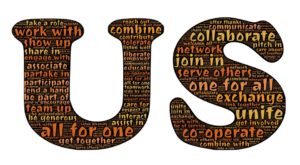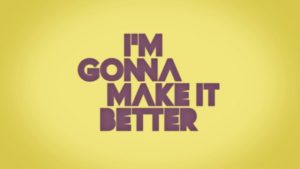I look forward to the weekend after Thanksgiving because that is when my family traditionally decorates for Christmas. I’ll hold out every year even though society keeps trying to make the holiday season start earlier and earlier. My favorite part of decorating is putting up lights outside. It’s special because my kids (now adults) always jump in to help. They get geeked about stringing lights, building massive electrical connections and making sure that the coverage is balanced and colorful.
 Our family also has a tradition where we’ll get in the car and drive throughout neighborhoods to see the various displays that people have constructed. I like to see actual lights and not these projection systems because I enjoy seeing the creativity that people have. The homes that go crazy and try to drain the local power grid are fantastic !! However, I also enjoy someone who can use light subtly, and still convey an artistic display. I’m also a bit biased to multi-colored lights versus vs. monochromatic yards. But I digress . . .
Our family also has a tradition where we’ll get in the car and drive throughout neighborhoods to see the various displays that people have constructed. I like to see actual lights and not these projection systems because I enjoy seeing the creativity that people have. The homes that go crazy and try to drain the local power grid are fantastic !! However, I also enjoy someone who can use light subtly, and still convey an artistic display. I’m also a bit biased to multi-colored lights versus vs. monochromatic yards. But I digress . . .
What does this have to do with HR ?? Everything.
You see we can be the ones who shine in our workplace. We can be that attractive display that people would get out of their office to meet and work with. What would HR be like for you if you were the light in the office and not the bearer of darkness?
I think shining your light is essential for HR. It’s actually easier that you may think because you are in control of how you approach your work as well as how you interact with others. I’m not talking about putting on some fake trappings to be peppy just for show. No one wants that. Shining to dispel the darkness is much more welcomed, and needed, in our workplaces.
We tend to think that making people feel good and enjoy what they do is a “waste of time” or an unnecessary “soft skill.” People are supposed to come to WORK, and that is all. (Insert giggle of disbelief here). The idea that people show up only to do their job is a misguided myth. Yes, they do their jobs. And, more often than not, they do it willingly even though they receive little encouragement or regular feedback.
Shining your light breaks up the drudgery of work. Being a beacon of light allows employees to look up from the grind of what they do to catch their breath and know they’ve been acknowledged and recognized. It’s time that HR intentionally be the light within their organization and push back the attitudes and approaches that look to force control and possibly anguish.
I understand that being someone who shines may not come naturally to some, but I encourage you to push through. Trust me. If you are someone who brings light to situations, you will be successful in all you do. It’s such a missing facet of today’s workplaces, that people will respond because they’re longing for it.
The key is to be the light in your organization year-round and not just during a season. It will be surprising to others at first, but how cool would it be if it became the norm? It would rock !!
(To give you a little nudge, I leave you with this gem from the 90’s !!)










